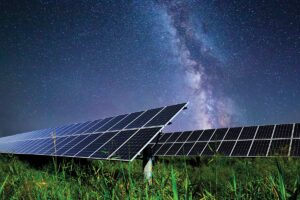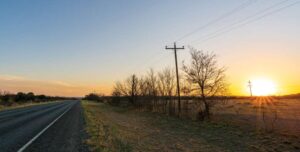Extreme weather conditions, high seasonal demand, and supply and shipping delays could pose reliability challenges for the nation’s electric utilities this summer, according to a new report by the North American Electric Reliability Corp. (NERC).
“The utility industry prepares its equipment and operators for challenging summer conditions, but persistent, extreme drought and its accompanying weather patterns create extra stress on electricity supply and demand,” says Mark Olson, NERC’s manager of reliability assessments, in a briefing on NERC’s Summer Reliability Assessment. “Grid operators in affected areas will need all available tools to keep the system in balance this summer.”
Olson outlined industry concerns, which include ongoing inventory disruptions that are delaying generation and transmission construction and upgrades, cybersecurity threats, supply challenges for coal-based generation, and an anticipated active late-summer wildfire season in the western U.S.
The report notes that reliability challenges are being compounded by evolving demands on the power grid, which has grown increasingly complex as renewable energy assets are added and consumers assert more control over their electricity use.
“There’s clear, objective, inclusive data indicating that the pace of our grid transformation is a bit out of sync with the underlying realities and the physics of the system,” says John Moura, NERC’s director of reliability assessment. “We look at that long-term, and we see the transformation that’s happened over the last 10 years with our traditional baseload generation resources like coal and nuclear retiring, and lots of new natural gas and variable generation, mostly solar and wind.”
Seven areas face risks of energy shortfalls this summer, says Olson. “Their anticipated generation resources may not be sufficient to meet the operating reserves of a peak summer day in an average year.”
But 2022 is not shaping up to be average. Drought conditions and the early beginning of wildfire season in the West and Southwest coupled with low winter snowfalls could pose problems for the Midcontinent Independent System Operator. That prompted a “high risk” designation for MISO, which serves 15 states, including Illinois.
NERC officials also warn that as older generation is retired, smaller baseload and peaking plants are being driven harder, increasing the risks of mechanical failures and forced outages. Officials also warn that some utilities are facing slowdowns in coal delivery, creating additional concern about falling reserve margins.
The National Rural Electric Cooperative Association reacted to the report by saying, “The ongoing energy transition must recognize the need for time, technology development and be inclusive of all energy sources to maintain reliability and affordability. A resilient and reliable electric grid that affordably keeps the lights on is the cornerstone of the American economy. American families and businesses rightfully expect the lights to stay on at a price they can afford. And a diverse energy mix that includes adequate baseload supply is essential to meeting those expectations day in and day out.”









